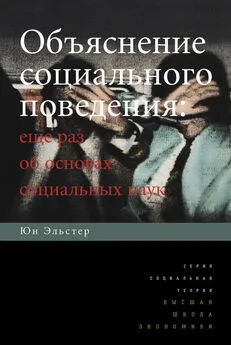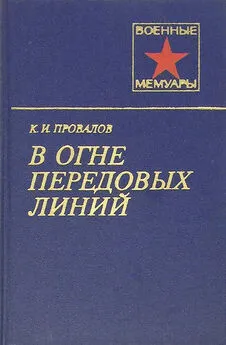Юн Эльстер - Кислый виноград. Исследование провалов рациональности
- Название:Кислый виноград. Исследование провалов рациональности
- Автор:
- Жанр:
- Издательство:Литагент ИЭП им.Гайдара
- Год:2019
- Город:Москва
- ISBN:978-5-93255-522-4
- Рейтинг:
- Избранное:Добавить в избранное
-
Отзывы:
-
Ваша оценка:
Юн Эльстер - Кислый виноград. Исследование провалов рациональности краткое содержание
Кислый виноград. Исследование провалов рациональности - читать онлайн бесплатно ознакомительный отрывок
Интервал:
Закладка:
• Berlin I. (1963–1964) ‘From hope and fear set free’ // Idem. Concepts and Categories. Harmondsworth: Penguin, 1981. P. 173–198.
• Berlin I. (1969) Two Concepts of Liberty. Oxford: Oxford University Press.
• Bernstein E. (1899) Die Voraussetzungen its Sozialismus.
• Bloom G. F. (1940) A Reconsideration of the Theory of Exploitation // Quarterly Journal of Economics. Vol. 55. P. 413–442.
• Bodemann E. (1895) Die Leibniz – Handschriften. Hanover.
• Borch K. (1968) The Economics of Uncertainty. Princeton: Princeton University Press.
• Borkenau F. (1934) Die Übergang vom feudalen zum bürgerlichen Weltbild. P.: Felix Alcan.
• Boudon R. (1977) Effets pervers et ordre social. P.: Presses Universitaires de France.
• Bourdieu P. (1979) La Distinction. P.: Editions de Minuit.
• Bronfenbrenner M. (1971) Income Distribution Theory. L.: Macmillan.
• Buchanan J., Brennan G. (1980) The Power to Tax. Cambridge: Cambridge University Press.
• Burke E. (1955) Reflections on the Revolution in France. N.Y.: Bobbs-Merrill.
• Burnyeat M.F. (1980) Aristotle on Learning to Be Good //Essays on Aristotle’s Ethics / A. Rorty (ed.). Berkeley: University of California Press. P. 69–92.
• Capra F (1976) The Tao of Physics. Huntington, NY: Fontana Books.
• Cohen G. A. (1978) Karl Marx’s Theory of History: A Defence. Oxford: Oxford University Press.
• Cohen G. A. (1979) Freedom, Capitalism and the Proletariat // The idea of Freedom / A. Ryan (ed.). Oxford: Oxford University Press. P. 9–25.
• Coleman D. C. (1973) Gentlemen and Players // Economic History Review, 2nd series. Vol. 26. № 1. P. 92–116.
• Coser L. (1971) Social Conflict and the Theory of Social Change // Conflict Resolution: Contributions of the Behavioral Sciences /C. G. Smith (ed.). Notre Dame, IN: University of Notre Dame Press. P. 58–65.
• Cyert R. M., de Groot M.H. (1975) Adaptive Utility // Adaptive Economic Models / R. H. Day, T. Groves (eds). N.Y.: Academic Press. P. 223–246.
• d’Aspremont C., Gevers L. (1977) Equity and the Informational Basis of Collective Choice // Review of Economic Studies. Vol. 44. Iss. 2. P. 199–210.
• Dahl T.S. (1977) Bamevern og sanfumsvern. Oslo: Pax.
• Davidson D. (1980) Essays on Actions and Events. Oxford: Clarendon Press.
• Davis K., Moore W. E. (1945) Some Principles of Stratification // American Sociological Review. Vol. 10. № 2. P. 242–249.
• Dennett D. (1976) Conditions of Personhood // The Identities of Persons /A. Rorty (ed.). Berkeley: University of California Press. R 175–196.
• Descartes R. (1897–1910) Oeuvres Completes: In 11 vols /C. Adam, P. Tannery (eds). P.: Vrin.
• Dickinson E. (1970) Complete Poems. L.: Faber and Faber.
• Dresser C. (1862) The Art of Decorative Design. London.
• Dreyfus H. L., Dreyfus S. (1978) Inadequacies in the Decision Analysis Model of Rationality // Foundations and Applications of Decision Theory. Vol. I: Theoretical Foundations /C. A. Hooker, J. J. Leach. E. F. McClennen (eds). Dordrecht: Reidel. P. 115–124.
• Elster J. (1975) Leibniz et la formation de I’esprit capitaliste. P.: Aubier-Montaigne.
• Elster J. (1976) Some Conceptual Problems in Political Theory //Power and Political Theory /B. Barry (ed.). Chichester: Wiley. P. 245–270.
• Elster J. (1978a) Logic and Society. Chichester: Wiley.
• Elster J. (1978b) Exploring Exploitation // Journal of Peace Research. Vol. 15. Iss. 1. P. 3–17.
• Elster J. (1978c) The Labor Theory of Value //Marxist Perspectives. Vol. 1. № 3. P. 70–101.
• Elster J. (1979) Ulysses and the Sirens. Cambridge: Cambridge University Press.
• Elster J. (1980a) Negation active et negation active: essai de sociologie ivanienne // Archives Européennes de Sociologie. Vol. 21. Iss. 2. P. 329–349.
• Elster J. (1980b) Reply to Comments //Inquiry. Vol. 23. № 2. P. 213–232.
• Elster J. (1981) Snobs (review of Bourdieu 1979) //London Review of Books. Vol. 3. № 20. P. 10–12.
• Elster J. (1982a) Explaining Technical Change. Cambridge: Cambridge University Press.
• Elster J. (1982b) Deception and Self-Deception in Stendhal. Unpublished lecture, Oxford University.
• Elster J. (1982c) A Paradigm for the Social Sciences? (Review of van Parijs 1981) // Inquiry. Vol. 25. P. 378–385.
• Elster J. (1982d) Marxism, Functionalism and Game Theory // Theory and Society. Vol. 11. № 4. P. 453–482.
• Engels F. (1845) The Condition of the Working Class in England. In: Marx K., Engels F. Collected Works. Vol. IV. L.: Lawrence and Wishart.
• Färber L. (1976) Lying, Despair, Jealousy, Envy, Sex, Suicide, Drugs and the Good Life. N.Y.: Basic Books.
• Farrell B. A. (1981) The Status of Psychoanalytic Theory. Harmondsworth: Pelican Books.
• Feller W. (1968) An Introduction to Probability Theory and Its Application. Vol. 1. N.Y.: Wiley.
• Fellner W (1965) Probability and Profits. Homewood, IL: Irwin.
• Fenoaltea S. (1975) The Rise and Fall of a Theoretical Model: The Manorial System // Journal of Economic History. Vol. 35. Iss. 2. R386-409.
• Festinger L. (1957) A Theory of Cognitive Dissonance. Stanford: Stanford University Press.
• Fingarette H. (1969) Self-Deception. L.: Routledge and Kegan Paul.
• Finley M. I. (1965) Technical innovation and economic progress in the ancient world. Reprinted as ch. II in: Finley (1981).
• Finley M. I. (1973) Democracy: Ancient and Modern. L.: Chatto and Windus.
• Finley M. I. (1976) The Freedom of the Citizen in the Greek World. Reprinted as ch. V in: Finley (1981).
• Finley M. I. (1981) Economy and Society in Ancient Greece. L.: Chatto and Windus.
• Fitzhugh G. (1857) Cannibals all! Cambridge, MA: Harvard University Press, 1960.
• Frankfurt H. F (1971) Freedom of Will and the Concept of a Person // Journal of Philosophy. Vol. 68. № 1. P. 5–20.
• Georgescu-Roegen N. (1954) Choice, Expectations and Measurability // Quarterly Journal of Economics. Vol. 68. Iss. 4. P. 503–534.
• Gibbard A. (1986) Interpersonal Comparisons: Preference, Good and the Intrinsic Reward of a Life // Foundations of Social Choice Theory / J. Elster, A. Hylland (eds). Cambridge: Cambridge University Press.
• Goldman A. (1972) Toward a Theory of Social Power // Philosophical Studies. Vol. 23. № 4. P. 221–268.
• Goldman A. (1978) Epistemics // Journal of Philosophy. Vol. 75. № 10.P. 509–524.
• Goldmann L. (1954) Le Dieu cache. P.: Gallimard.
• Goldstine H. (1972) The Computer from Pascal to von Neumann. Princeton: Princeton University Press.
• Goodin R. (1986) Laundering Preferences //Foundations of Social Choice Theory / J. Elster, A. Hylland (eds). Cambridge: Cambridge University Press. P. 75–102.
• Gorman W M. (1967) Tastes, Habits and Choices // International Economic Review. Vol. 8. № 2. P. 218–222.
• Gullestad S., Tschudi F (1982) Labelling Theory of Mental Illness: A Critique Illustrated by Two Case Studies //Psychiatry and Social Science. Vol. 1. P. 213–226.
• Haavelmo T. (1970) Some Observations on Welfare and Economic Growth //Induction, Growth and Trade: Essays in Honour of Sir Roy Harrod / W. A. Eltis, M. Scott, N. Wolfe (eds). Oxford: Oxford University Press. P. 65–75.
• Habermas J. (1982) Diskursethik – Notizen zu einem Begründungsprogram. Mimeographed.
• Hammond P., Mirrlees J. (1973) Agreeable Plans // Models of Economic Growth / J. Mirrlees, N. H. Stern (eds). L.: Macmillan. P. 283–299.
• Harsanyi J. (1977) Rational Behavior and Bargaining Equilibrium in Games and Social Situations. Cambridge, UK: Cambridge University Press.
• Hart H. L. A., Honore A. M. (1959) Causation in the Law. Oxford: Oxford University Press.
• Heal G. (1973) The Theory of Economic Planning. Amsterdam: North Holland.
• Heckscher E. (1955) Mercantilism. Vols. I–II. L.: Allen and Unwin.
• Hegel G. W F (1970) Werke in 12 Bänden. Frankfurt: Suhrkamp.
• Heimer C., Stinchcombe A. (1980) Love and Irrationality //Social Science Information. Vol. 19. № 415. P. 697–754.
• Hintikka J. (1961) Knowledge and Belief. Ithaca, NY: Cornell University Press.
• Hirsch F. (1976) Social Limits to Growth. Cambridge, MA: Harvard University Press.
• Hirschman A. (1967) Development Projects Observed. Washington, D.C.: The Brookings Institution.
• Hirschman A. (1982) Shifting Involvements: Private Interest and Public Action. Princeton: Princeton University Press.
• Hogarth R. M. (1977) Methods for Aggregating Opinions //Decision Making and Change in Human Affairs / H. Jungermann, G. de Zeeuw (eds). Dordrecht: Reidel. P. 231–256.
• Janis I. (1972) Victims of Group-Think. Boston: Houghton Mifflin.
• Johansen L. (1977) Lectures on Macroeconomic Planning. Part 1: General Aspects. Amsterdam: North Holland.
• Jones O. (1856) The Grammar of Ornament. L.; N.Y.: van Nostrand, 1972.
• Jones R. A. (1977) Self-Fulfilling Prophecies. Hillsdale, NJ: Lawrence Erlbaum.
• Katona G. (1951) Psychological Analysis of Economic Behavior. N.Y.: McGraw-Hill.
• Kelly J. (1978) Arrow Impossibility Theorems. NY.: Academic Press.
• Kenny A. (1963) Action, Emotion and Will. L.: Routledge and Kegan Paul.
• Kenny A. (1965–1966). Happiness. Proceedings of the Aristotelian Society (n.s.) 66: 93-102.
• Kenny A. (1970). Intention and Purpose in Law // Essays in Legal Philosophy / R. Summers (ed.). Oxford: Blackwell. P. 146–163.
• Kenny A. (1975) Will, Freedom and Power. Oxford: Blackwell.
• Kenny A. (1976) Human Abilities and Dynamic Modalities //Essayson Explanation and Understanding /J. Manninen, R. Tuomela (eds). Dordrecht: Reidel. P. 209–232.
• Knei-Paz B. (1977) The Social and Political Thought of Leon Trotsky. Oxford: Oxford University Press.
• Kolakowski L. (1978) Main Currents of Marxism. Vols. I–III. Oxford: Oxford University Press.
• Kolm S.-C. (1979) La philosophie bouddhiste et les ‘hommes economiques’ //Social Science Information. Vol. 18. № 4–5. P. 489–588.
• Kolm S.-C . (1981a) Altruismes et efficacités: le sophisme de Rousseau //Social Science Information. Vol. 20. № 2. P. 293–354.
• Kolm S.-C . (1981b) Efficacité et altruisme: les sophismes de Mandeville, Smith et Pareto // Revue Economique. Vol. 32. № 1. P. 5–31.
• Koopmans T. (1960) Stationary Ordinal Utility and Impatience // Econometrica. Vol. 28. № 2. P. 287–309.
• Koopmans T., Diamond P., Williamson R. (1964) Stationary Utility and Time Perspective // Econometrica. Vol. 32. № 1–2. P. 82–100.
• Koyré A. (1966) Etudes galiléennes. P.: Hermann.
Читать дальшеИнтервал:
Закладка:







